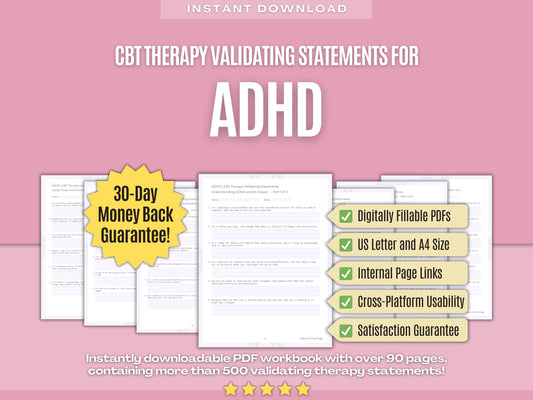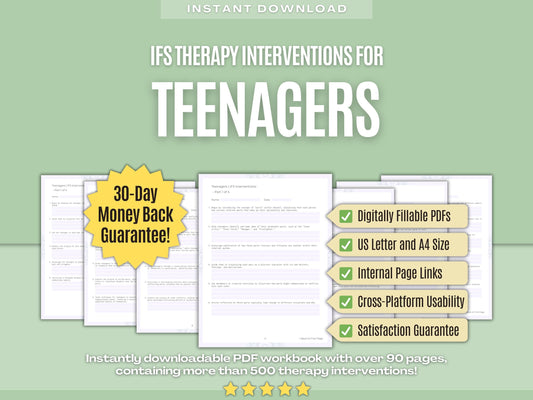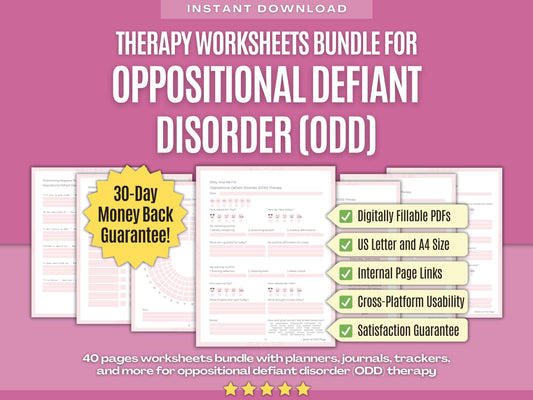Elevate Your Therapy and Guide Your Clients to Inner Healing with Our Couples Therapy Progress Notes! ✨
1. Beginning Together
- The couple attended their second session demonstrating increased comfort and rapport with each other and the therapeutic process.
- Both partners reported gaining insights into their communication patterns and expressed a willingness to implement recommended strategies.
- Delved deeper into the couple's relationship history, identifying recurring themes and triggers for conflict.
- Introduced the concept of emotional regulation and explored strategies for managing intense emotions during conflicts.
- Discussed the role of attachment styles in shaping relationship dynamics and explored how each partner's attachment needs influence the relationship.
- Explored each partner's strengths and areas for growth within the relationship, fostering a balanced perspective.
- Provided psychoeducation on common relationship dynamics and pitfalls, empowering the couple with knowledge and awareness.
- Explored any cultural or societal influences impacting the couple's relationship and communication styles.
- Discussed the importance of maintaining individual identities and boundaries within the relationship, promoting autonomy and self-expression.
- Offered additional resources such as books, podcasts, or workshops to support the couple's growth journey.
- Emphasized the significance of self-care and stress management techniques to maintain emotional well-being during challenging times.
Need more? Find all 500+ Therapy Progress Notes for Couples Therapy in our Digital Workbook!
2. Understanding Relationships
- Today's session focused on deepening the couple's understanding of relationship dynamics and exploring underlying patterns.
- Discussed attachment styles and their influence on how individuals perceive and respond to relationship cues.
- Introduced the concept of emotional bids and responsiveness, emphasizing the importance of attunement and validation.
- Explored the Gottman Institute's research on the Four Horsemen of the Apocalypse: criticism, defensiveness, contempt, and stonewalling.
- Introduced the concept of emotional flooding and discussed strategies for managing intense emotional reactions during conflicts.
- Introduced the Speaker-Listener technique as a structured approach to effective communication.
- Explored the role of empathy in fostering connection and understanding within the relationship.
- Discussed the importance of establishing rituals of connection to strengthen the couple's bond and create shared meaning.
- Encouraged the couple to identify their primary love languages and discuss ways to meet each other's emotional needs.
- Provided psychoeducation on the effects of stress and external factors on relationship satisfaction.
- Discussed the role of boundaries in maintaining a healthy relationship and preserving individual autonomy.
Need more? Find all 500+ Therapy Progress Notes for Couples Therapy in our Digital Workbook!
3. Mindfulness for Couples
- Today's session introduced the concept of mindfulness and its application within the context of couples therapy.
- Explored the benefits of mindfulness for couples, including increased emotional regulation and enhanced communication.
- Encouraged the couple to practice mindfulness exercises together to strengthen their connection and mutual understanding.
- Discussed common barriers to mindfulness practice within the relationship, such as distractions and habitual patterns of communication.
- Addressed any resistance or skepticism toward mindfulness practice, clarifying misconceptions and highlighting potential benefits.
- Discussed the role of mindfulness in managing conflict and reducing reactivity during challenging interactions.
- Guided the couple through a practice of the STOP technique to experience its effectiveness in real-time.
- Encouraged the couple to practice empathy-focused mindfulness exercises to deepen their emotional connection.
- Explored any barriers to self-awareness within the relationship, such as defensiveness or avoidance of uncomfortable emotions.
- Provided psychoeducation on the neurobiological basis of mindfulness and its effects on the brain's stress response system.
- Discussed the potential challenges of maintaining a consistent mindfulness practice and strategies for overcoming obstacles.
Need more? Find all 500+ Therapy Progress Notes for Couples Therapy in our Digital Workbook!
4. Dialectical Behavior Therapy (DBT) for Couples
- Today's session focused on introducing Dialectical Behavior Therapy (DBT) principles and techniques within the context of couples therapy.
- Introduced the concept of dialectical dilemmas within relationships, such as autonomy versus connection or acceptance versus change.
- Introduced the DBT skill of mindfulness and discussed its application in increasing awareness and acceptance within the relationship.
- Encouraged the couple to practice mindfulness exercises together to enhance their connection and emotional regulation.
- Modeled validation techniques for the couple and encouraged them to practice validating each other's experiences and emotions.
- Discussed distress tolerance techniques such as self-soothing, distraction, and radical acceptance.
- Addressed any challenges or barriers to implementing distress tolerance skills within the relationship.
- Discussed emotion regulation strategies such as identifying triggers, challenging automatic thoughts, and problem-solving.
- Addressed any maladaptive coping strategies within the relationship and explored alternative, DBT-informed approaches.
- Discussed assertiveness training and role-played assertive communication techniques with the couple.
- Provided psychoeducation on the DBT biosocial theory and how early experiences and biological vulnerabilities can contribute to relationship difficulties.
Need more? Find all 500+ Therapy Progress Notes for Couples Therapy in our Digital Workbook!
5. Enhancing Communication (IPT)
- Today's session focused on enhancing communication skills within the context of Interpersonal Psychotherapy (IPT) for couples.
- Explored the couple's current communication patterns and identified areas for improvement or adjustment.
- Led the couple through an exercise in active listening to practice attentive and empathetic listening skills.
- Provided feedback and guidance on active listening skills, highlighting areas of strength and areas for improvement.
- Encouraged the couple to validate each other's perspectives and experiences during discussions and conflicts.
- Introduced the concept of assertive communication and discussed its role in expressing needs and setting boundaries respectfully.
- Discussed common pitfalls in communication, such as passive-aggressiveness or avoidance, and strategies for overcoming them.
- Addressed any communication breakdowns or misunderstandings that have occurred within the relationship.
- Encouraged the couple to pay attention to non-verbal cues such as body language, facial expressions, and tone of voice during interactions.
- Discussed the importance of timing and context in communication, emphasizing the need for sensitivity and consideration for the partner's state of mind.
- Encouraged the couple to practice communication exercises outside of therapy sessions and to reflect on their experiences together.
Need more? Find all 500+ Therapy Progress Notes for Couples Therapy in our Digital Workbook!
6. Emotion-Focused Therapy (EFT) for Couples
- Today's session focused on introducing Emotion-Focused Therapy (EFT) principles and techniques within the context of couples therapy.
- Emphasized the EFT model's focus on identifying and transforming negative patterns of interaction into more secure and supportive bonds.
- Led the couple through an emotion-focused assessment to identify primary emotions and attachment-related concerns.
- Explored any attachment-related injuries or breaches of trust within the relationship and their impact on emotional intimacy.
- Encouraged the couple to practice emotional expression exercises to deepen their understanding and connection with each other.
- Discussed the role of empathy and validation in creating a secure emotional bond between partners.
- Explored the couple's dance of interaction, including pursuer-withdrawer dynamics or demand-withdraw patterns.
- Introduced the concept of emotional attunement and how partners can attune to each other's emotional needs and experiences.
- Discussed the importance of emotional regulation and self-soothing techniques in managing intense emotions during conflicts.
- Explored the concept of relational needs and how unmet needs can lead to emotional distress and relational dissatisfaction.
- Provided psychoeducation on the neurobiology of attachment and emotions, helping the couple understand the underlying mechanisms of their interactions.
Need more? Find all 500+ Therapy Progress Notes for Couples Therapy in our Digital Workbook!
7. Psychodynamic Approaches to Couples Therapy
- Today's session focused on exploring psychodynamic approaches within the context of couples therapy.
- Emphasized the importance of understanding how individual psychological dynamics contribute to relationship patterns and interactions.
- Explored any unconscious conflicts or unresolved issues within the relationship that may be contributing to distress or dissatisfaction.
- Addressed any patterns of projection, introjection, or projective identification within the relationship and their impact on communication and understanding.
- Encouraged the couple to explore any parallel processes or dynamics between their interactions with each other and their relationships with significant figures from their past.
- Explored any attachment-related anxieties or insecurities within the relationship and their impact on trust, intimacy, and communication.
- Introduced the concept of object relations and how it can help understand the internalized representations of self and other within the relationship.
- Discussed the significance of unconscious communication within the relationship, including nonverbal cues, symbolic gestures, and patterns of relating.
- Addressed any resistance or skepticism toward psychodynamic concepts and techniques, discussing their relevance and applicability in couples therapy.
- Encouraged the couple to explore fantasies, wishes, and fears related to their relationship and to discuss them openly with each other.
- Explored the couple's shared narratives and life stories, highlighting recurring themes, conflicts, and aspirations for the future.
Need more? Find all 500+ Therapy Progress Notes for Couples Therapy in our Digital Workbook!
8. Harmonizing through Music Therapy
- Today's session focused on exploring the use of music therapy techniques to harmonize the couple's relationship dynamics.
- Emphasized the role of music as a universal language that transcends verbal communication barriers and accesses deeper emotional states.
- Introduced the concept of music improvisation as a tool for exploring spontaneous expression and creative collaboration within the relationship.
- Addressed any fears or insecurities related to musical expression within the relationship, providing a supportive and non-judgmental environment for exploration.
- Discussed the concept of music as a mirror, reflecting back the couple's emotions, thoughts, and relational dynamics through lyrical content, rhythm, and melody.
- Encouraged the couple to create a playlist of songs that resonate with their relationship journey, incorporating music that reflects both shared experiences and individual perspectives.
- Explored the couple's reactions to each other's musical expressions, facilitating dialogue and insight into each other's inner worlds.
- Led the couple through songwriting exercises to express their thoughts, feelings, and aspirations for their relationship through lyrics and melody.
- Provided psychoeducation on the therapeutic power of music in promoting emotional healing, insight, and relational growth within couples.
- Discussed the concept of music as a form of nonverbal communication, allowing the couple to express complex emotions and experiences that may be difficult to articulate verbally.
- Addressed any unresolved conflicts or emotions that emerge during the music-making process and used them as opportunities for deeper exploration and understanding.
Need more? Find all 500+ Therapy Progress Notes for Couples Therapy in our Digital Workbook!
9. Closing a Session Together
- Today's session focused on closing our time together and summarizing key insights and themes discussed.
- Encouraged the couple to reflect on their experiences and insights gained during the session.
- Discussed any homework assignments or goals set during the session and clarified expectations for follow-up.
- Summarized the main topics discussed and key takeaways from the session.
- Reviewed any tools or techniques learned during the session and discussed their continued application outside of therapy.
- Addressed any challenges or obstacles the couple may have faced during the session and discussed strategies for overcoming them.
- Encouraged the couple to continue communicating openly and honestly with each other between sessions.
- Discussed any administrative details or paperwork that needed to be completed before the couple left.
- Reviewed any commitments or agreements made during the session and ensured clarity and mutual understanding.
- Validated the couple's efforts and progress made during the session, no matter how small.
- Provided reassurance and support for the couple's continued journey toward growth and healing.
Need more? Find all 500+ Therapy Progress Notes for Couples Therapy in our Digital Workbook!
10. Reflecting on the Journey
- Today's session focused on reflecting on the journey that the couple has embarked on throughout their therapy process.
- Discussed any insights, breakthroughs, or challenges that have emerged during the course of therapy.
- Validated the couple's efforts and commitment to growth and healing within the therapeutic journey.
- Reviewed the goals set at the beginning of therapy and assessed the progress made toward achieving them.
- Explored any lingering challenges or unresolved issues that may still be present within the relationship.
- Addressed any setbacks or relapses the couple may have experienced and discussed strategies for overcoming them.
- Encouraged the couple to reflect on their communication patterns, relational dynamics, and areas of growth within the relationship.
- Discussed the impact of therapy on the couple's individual growth and self-awareness.
- Explored the couple's hopes and aspirations for their relationship moving forward.
- Provided reassurance and support for the couple's continued journey toward greater connection and fulfillment.
- Discussed the importance of ongoing self-reflection and communication within the relationship.
We hope that our therapy progress notes for Couples therapy will help you to elevate your therapy practice and guide your clients to inner healing! Do you need more therapy progress notes for Couples therapy? Find them all in our Digital Workbook! Or do you have any questions or suggestions for us? Please feel free to contact us at any time!


















